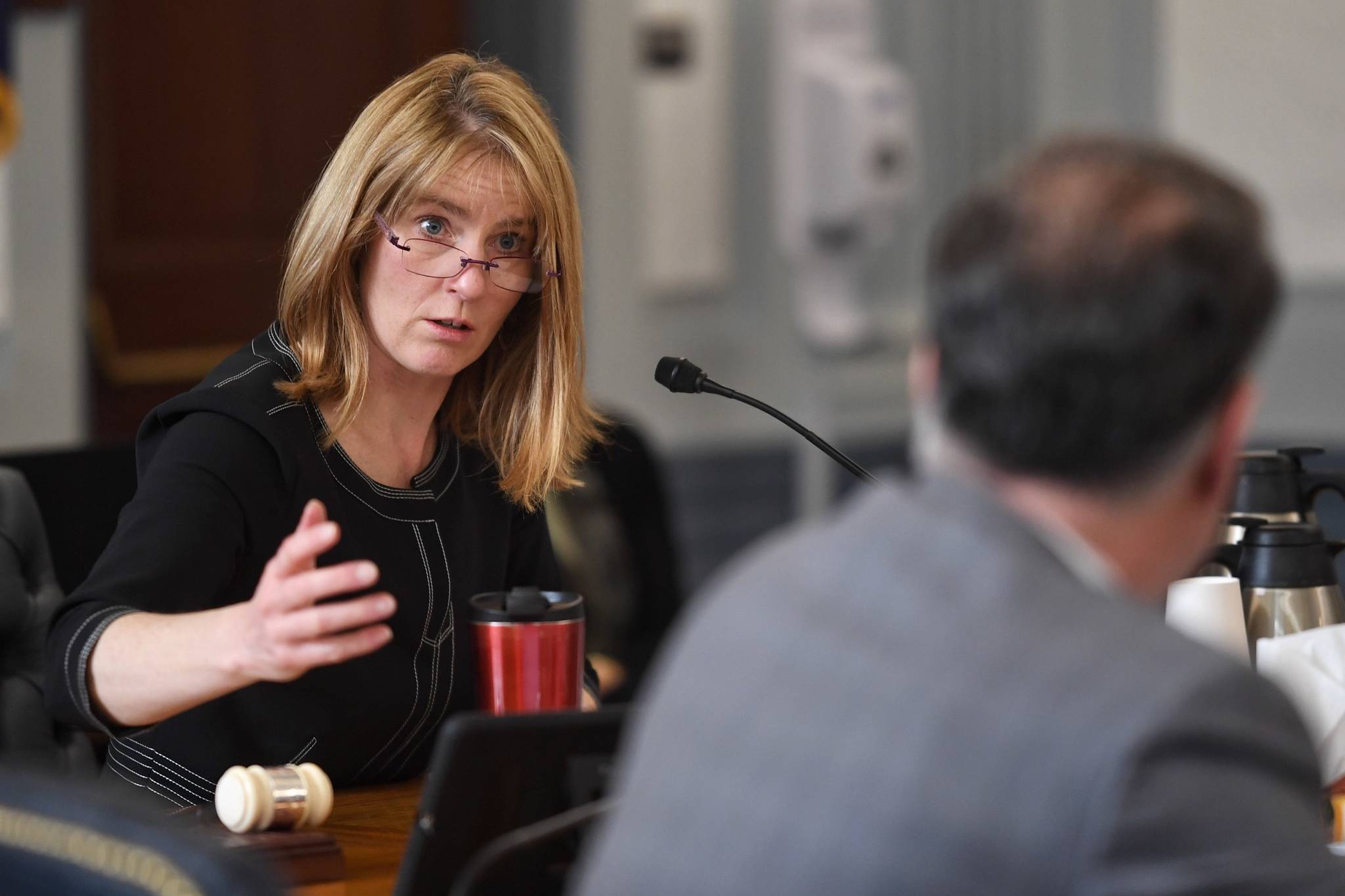The state probably won’t help cities pay off new school construction debt any time soon.
The Senate Finance Committee Monday morning discussed House Bill 106, which would extend a moratorium on the state reimbursing municipalities for school construction bonds to 2025. Previously, the state stopped covering part of new school bonds in 2015. That moratorium would expire July 1, 2020 unless it is extended.
Local school officials said the bill — sponsored by Rep. Tammie Wilson, R-North Pole — could be a negative for the district.
“My first blush is that the city owns our facilities, and whenever we delay work on our facilities, it costs us more money down the road,” Juneau School District Superintendent Bridget Weiss told the Empire in an interview. “Anything left unattended for 10 years, that is not going to bode well for our school district.”
Juneau City Manager Rorie Watt said in an interview that an extended ban on reimbursement projects will likely mean putting more local money into smaller projects during the moratorium and attempting to delay larger projects until reimbursements resume.
The moratorium would allow the Legislature more time to review school bond debt reimbursement while not taking on more debt and potentially re-establish a reimbursement program at a new funding level. If the bill becomes law, reimbursement for approved projects would resume at 50 and 40 percent levels after July 1, 2025.
“We’ve got hard decisions to make, and we’ve got to make the the right ones,” said Sen. Mike Shower, R-Wasilla during the meeting. “Even in the Mat-Su where we’re growing, I’m willing support this for now.”
A spreadsheet referenced during the meeting put the state’s liability for existing debt at more than $800 million.
Committee Co-Chair Sen. Natasha von Imhof, R-Anchorage, Shower and other committee members requested data from the Alaska Department of Education and Early Development that would show how much debt being reimbursed was incurred by maintenance rather than new construction. Additionally, more insight into the condition of public school facilities around the state was requested.
[Senate puts full PFD in budget draft]
School Finance Manager Elwin Blackwell and Facilities Manager Tim Mearig, who were present at the meeting, said the debt breakdown does not yet exist but could be created and there is not a comprehensive database of building conditions available.
“Knowledge is power, and data is important to help shape policy decisions,” Von Imhof said. “If you would like the help from this committee to help, maybe pass a statute to begin funding school building or repair work again, we will need to have data.”
She said when DEED employees visit districts, it would make sense to also record the condition of buildings, when they were built and student count among other information in a larger database.
During public testimony both Jim Anderson, CFO for the Anchorage School District and Nils Anderson, Executive Director for Alaska Municipal League, spoke against the moratorium.
“The state would see overall school construction decrease in years to come, and we question whether that’s the outcome we’re trying to achieve with this continued moratorium,” Andreasson said. “A 10-year moratorium does not meet the state’s goals nor its constitutional obligations. Another five years of stalled school constructions is an arbitrary time frame placed on the critical needs of school districts and the responsibility of the state.”
The new bill, which was put aside for further consideration, would not retroactively affect debt from before 2015, Von Imhof said.
That means it would not impact the school bond debt issue being watched closely by municipalities, including City and Borough of Juneau.
Gov. Mike Dunleavy’s proposed budget eliminated funding for the debt, the House of Representative’s budget cut half of the funding, and the Senate’s budget maintained full funding — about $99.8 million — for school bond debt.
[Dig this: Art and science collide in new Ray Troll exhibition]
The program in Juneau is paying off debt from projects including remodeling Auke Bay Elementary School and Sayéik Gastineau Community School.
The level of funding ultimately approved by the Legislature and governor will have a direct impact on local property taxes.
“Our citizens should be advised that the most likely outcome of school debt shifting by the Governor or legislature is a local property tax increase between 4.4 percent and 13.7 percent for the next one, five or 10 years,” City Manager Rorie Watt wrote in a memo last week to the mayor and Assembly.
DEED figures put Juneau in line to be reimbursed $7, 155,025 this year if the program is fully funded.
For comparison, about $41.2 million would go to Anchorage, $18.36 million to Mat-Su and $ 8.8 million to Fairbanks.
Watt stated the city could face an additional cost of $3.55 million or $7.1 million in fiscal year 2020, or up to $23 million over the next five fiscal years.
“We’re really waiting on the state to settle on fiscal certainty,” Watt said.
• Contact reporter Ben Hohenstatt at (907)523-2243 or bhohenstatt@juneauempire.com. Follow him on Twitter at @BenHohenstatt.

